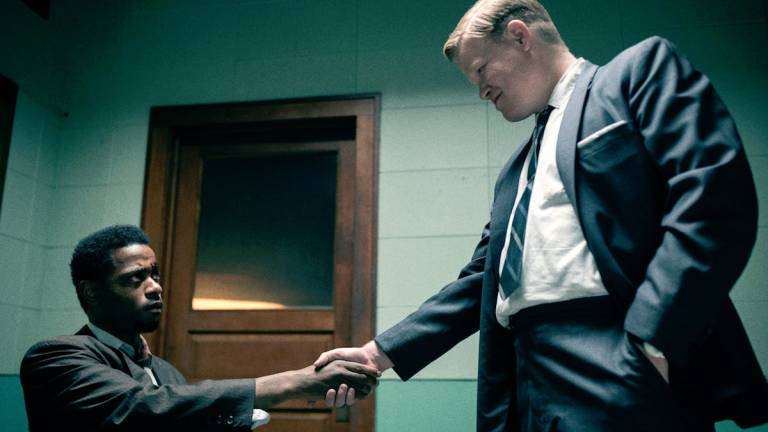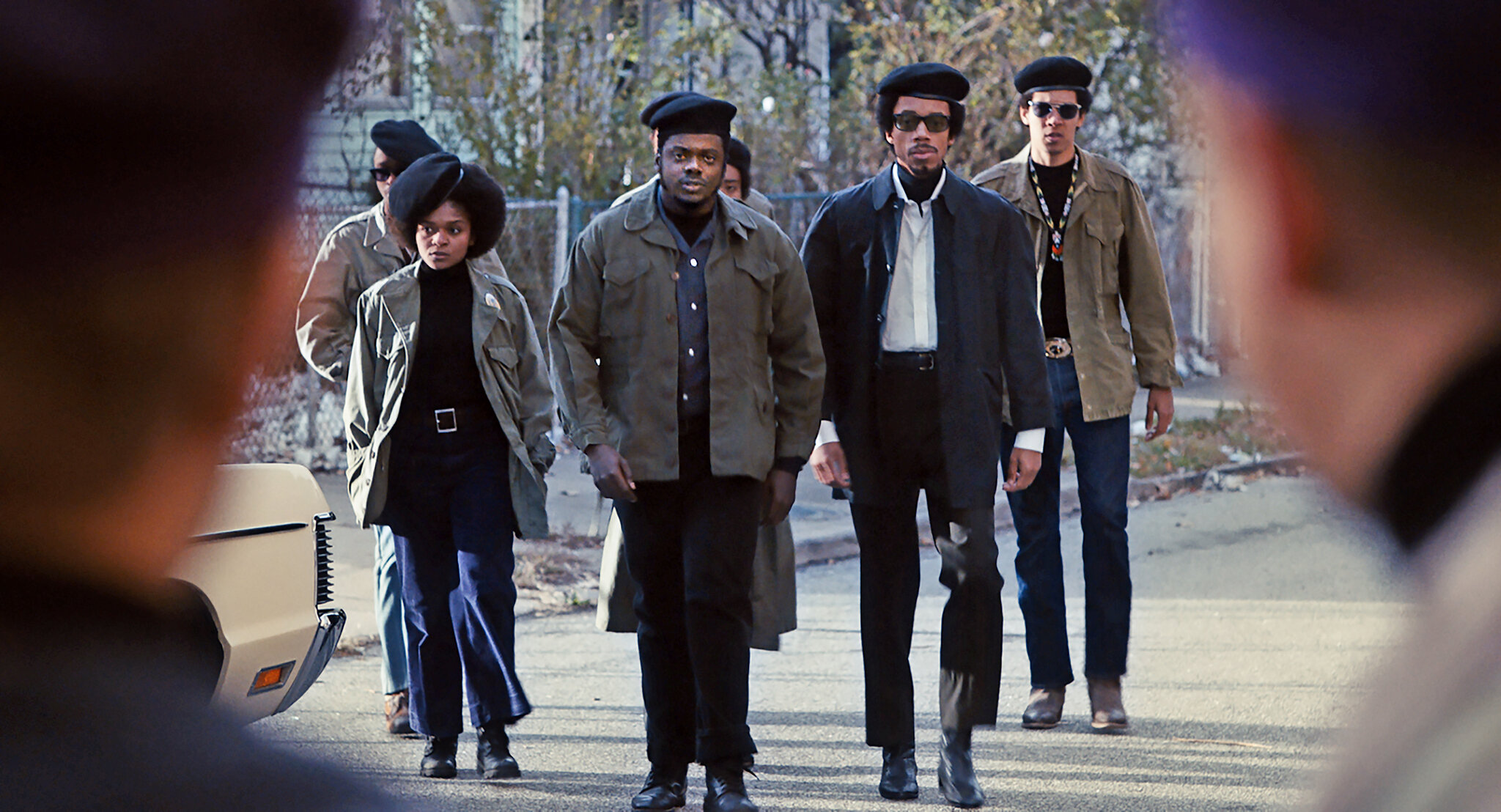As chairman of the Illinois Black Panther Party branch, Fred Hampton advocated unity and solidarity for the economically dispossessed of all racial groups, and worked successfully to begin to bring that solidarity into being. For this reason he was assassinated in his sleep at the age of 21 by Chicago police, acting at the behest of the FBI, as part of a broad program to crush revolutionary movements in America. He was betrayed by a man named Bill O’Neal, a small-time criminal turned police informant who insinuated himself into a high position in the Illinois Panthers. He gave police a map of Hampton’s apartment and drugged him so that he would not wake during the raid.
Judas and the Black Messiah parallels this story with the most famous betrayal in history. It begins with Bill O’Neal, Judas, being arrested for impersonating an FBI agent. He is threatened with five years in prison—or alternatively, he can work for the FBI and take his thirty pieces of silver. He chooses the latter and is introduced to Hampton, whose trust he quickly wins. And throughout the film we see O’Neal struggling with the burden of his treachery. He clearly admires Fred Hampton, and ideologically even agrees with the Panthers. But he is weak, frightened, and easily led.
Shaka King‘s film does an excellent job of turning messy, confusing real-life events into a compelling, direct narrative. The foreknowledge of Hampton’s betrayal and death gives the film’s events a sense of bleak inevitability. The hopefulness of the film’s opening movement, when Hampton is making inroads in bringing together Black, white and Latino leftist groups, is gradually wound back as the FBI and O’Neal work to undermine the Panther’s efforts. The film shows why Hampton was such a powerful figure—every word that leaves his mouth is a call to action. He quotes Mao: “Power comes from the barrel of a gun.” Daniel Kaluuya as Hampton is a powerful, unflappable presence.
At times, however, I felt as if Judas and the Black Messiah was a prisoner of the dynamic suggested by its title. Lakeith Stanfield puts in a truly extraordinary performance as O’Neal, one that was just nominated for an Oscar alongside Kaluuya’s, and a nod for the picture itself. Throughout the film a constant look of discomfort and unease intensifies on O’Neal’s face as he is drawn deeper and deeper into deception. Those around him want to trust him; the only trial he is put to, early on in the film, is to hotwire his own car to prove that he stole it, as the other Panthers are suspicious of its origin (it was given to him by the FBI). It’s a great, very tense scene; but this scene and others like it, together with the strength of Stanfield’s performance, have the unintended effect of making O’Neal’s travails as an informer, and his inner anguish, the focus of the movie. The viewer learns a lot about O’Neal, whilst Hampton never really feels like a fully-realised character. It is understandably very difficult to depict someone of Hampton’s stature without enlarging them to mythical proportions. But the deliberate decision to make O’Neal’s treachery the focus of the film doesn’t help.
Although there is an ultimately unresolved tension within the film’s dual nature—being a character study of O’Neal on the one hand, and a depiction of a stifled revolution on the other—it is gripping throughout and concludes on a clear, tragic note. The message as I took it is that nothing can be won without a fight and the suffering that brings. But the overwhelming impression is simply one of great sadness.
Judas and the Black Messiah is currently playing in cinemas.


